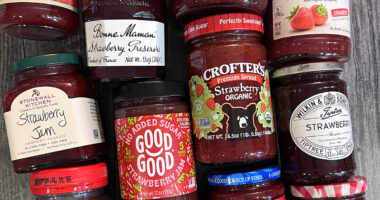Collagen, the most abundant protein in our bodies, acts as a scaffolding for our skin, providing strength, elasticity, and support. It helps maintain skin hydration and smoothness while preventing the formation of wrinkles and sagging. As we age, collagen production naturally declines, leading to visible signs of aging. Therefore, it is crucial to support collagen synthesis through proper nutrition.
Plant-Based Nutrients for Collagen Production
Contrary to popular belief, collagen production does not rely solely on consuming collagen-rich foods like meat. Instead, a well-rounded plant-based diet can provide all the necessary nutrients for collagen synthesis. Let’s explore some of these essential nutrients:
Plant-Powered Vitamin C: Boosting Collagen and Unveiling Radiant Skin
Vitamin C is a vital nutrient for collagen synthesis as it plays a crucial role in the formation of collagen fibers. Fortunately, numerous plant-based sources are rich in vitamin C, including citrus fruits, strawberries, kiwis, papayas, bell peppers, broccoli, and leafy greens like spinach and kale. Studies have shown that a diet high in vitamin C is associated with improved skin appearance, reduced wrinkles, and enhanced collagen production (1✔ ✔Trusted Source
Efficacy of Vitamin C Supplementation on Collagen Synthesis and Oxidative Stress After Musculoskeletal Injuries: A Systematic Review
Go to source
).
Plant-Based Antioxidants Shielding Collagen and Revitalizing Skin
Plant-based foods are abundant in antioxidants, which help protect the skin from oxidative stress and damage. Oxidative stress can accelerate collagen breakdown and impair its synthesis. Colorful fruits and vegetables, such as berries, tomatoes, carrots, and sweet potatoes, are excellent sources of antioxidants. Consuming a variety of these plant-based foods ensures a diverse range of antioxidants, providing optimal skin protection and collagen support.
Fueling Skin Radiance and Collagen with Omega-3 Fatty Acids
Omega-3 fatty acids, primarily found in plant-based sources like chia seeds, flaxseeds, walnuts, and hemp seeds, offer numerous benefits for skin health. They help maintain skin barrier function, reduce inflammation, and enhance collagen production (2✔ ✔Trusted Source
Omega-3 fatty acids enhance ligament fibroblast collagen formation in association with changes in interleukin-6 production
Go to source
). Incorporating these plant-based sources of omega-3 fatty acids into a vegetarian diet can support healthy skin and collagen synthesis.
Nurturing Skin’s Resilience and Elasticity with Silica-Rich Food
Silica is a trace mineral that plays a crucial role in collagen formation and maintenance. It helps to cross-link collagen fibers, contributing to skin strength and elasticity. Plant-based foods rich in silica include cucumbers, bell peppers, tomatoes, leafy greens, and whole grains like oats and quinoa. Including these silica-rich foods in a plant-based diet can provide the necessary support for collagen synthesis (3✔ ✔Trusted Source
Sources, Bioavailability, and Safety of Silicon Derived from Foods and Other Sources Added for Nutritional Purposes in Food Supplements and Functional Foods
Go to source
READ RELATED: How Long Is Rotisserie Chicken Good For? We Asked the Experts
).
Unleashing Proanthocyanidins Found in Berries for Supple and Youthful Skin
Proanthocyanidins: Proanthocyanidins are plant compounds found in abundance in foods like grapes, berries, and cocoa. These compounds have been shown to enhance collagen synthesis and promote skin elasticity (4✔ ✔Trusted Source
Anti-Aging Effect and Mechanism of Proanthocyanidins Extracted from Sea buckthorn on Hydrogen Peroxide-Induced Aging Human Skin Fibroblasts
Go to source
). Including these plant-based sources of proanthocyanidins in a vegetarian diet can offer additional support for optimal skin health.
Advertisement
The notion that vegetarians require meat for adequate collagen production is being debunked by scientific research. A well-planned plant-based diet can provide all the necessary nutrients to support healthy collagen synthesis.
References:
- Efficacy of Vitamin C Supplementation on Collagen Synthesis and Oxidative Stress After Musculoskeletal Injuries: A Systematic Review – (https://pubmed.ncbi.nlm.nih.gov/30386805/)
- Omega-3 fatty acids enhance ligament fibroblast collagen formation in association with changes in interleukin-6 production – (https://pubmed.ncbi.nlm.nih.gov/10632966/)
- Sources, Bioavailability, and Safety of Silicon Derived from Foods and Other Sources Added for Nutritional Purposes in Food Supplements and Functional Foods – (https://www.mdpi.com/2076-3417/10/18/6255)
- Anti-Aging Effect and Mechanism of Proanthocyanidins Extracted from Sea buckthorn on Hydrogen Peroxide-Induced Aging Human Skin Fibroblasts – (https://pubmed.ncbi.nlm.nih.gov/36290623/)
Source: Medindia








